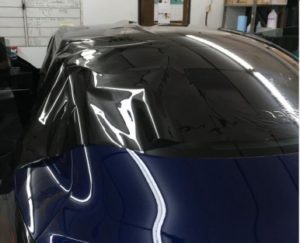Automotive Window Film Blocks UV Radiation
Automotive window tint blocks UV radiation and heat-producing infrared rays, keeping your car cooler, and protecting you and your passengers. It also reduces glare and keeps the sun’s harmful rays out.
The auto safety film offered at Alta Mere in Plano Texas holds broken glass in place after an accident or collision, making it harder for thieves to access the interior of your vehicle. Plus, it offers a unique look that catches people’s attention.
UV Protection
The ceramic particle coating found in this type of tint helps protect a vehicle’s occupants from the harmful effects of UV rays and reduces interior fading and deterioration over time. This means that your car’s upholstery will look newer and more comfortable for longer. Additionally, it can help to keep your skin healthy by reducing the risk of sunburn and skin cancer.
interior fading and deterioration over time. This means that your car’s upholstery will look newer and more comfortable for longer. Additionally, it can help to keep your skin healthy by reducing the risk of sunburn and skin cancer.
This automotive window film also rejects a significant amount of solar heat, keeping the interior of your vehicle cooler and allowing you to save on fuel costs by not overusing the air conditioning. Furthermore, the coating on this window tint provides a small level of protection against glass shards in the event of a sudden collision.
Finally, this tint offers high optical clarity, so you can enjoy a clear view out of your windows even when the sun is at its brightest. It is also not reflective, so it won’t impede GPS or cellular signals.
Heat Rejection
XPEL’s nano-ceramic tint offers superior heat rejection, keeping your car cooler and more comfortable. It is also metal-free, meaning it will not interfere with cell phone or electronic signals. This type of tint is a great alternative to carbon and metal dye films, which tend to interfere with signals.
It is important to note that the darker a window film is, the more it will reject infrared radiation. This is an essential feature to look for when deciding on which automotive window tint to purchase.
Crystalline, which is a popular brand of window tint, offers a high level of IR rejection and UV protection. Its high IRER rating means it will keep the interior of your vehicle cooler, which can prevent leather and other materials from damaging due to direct sunlight. The film is also durable, able to withstand scratches and other damage. This is a good option for customers who want the protection of UV and IR, but are looking for a more affordable alternative to the ceramic IR series.
Safety
Automotive window tints offer a number of benefits, including UV protection and heat rejection. Some films also provide safety and security features. These feature-packed products help protect passengers and cargo in the event of a collision, and also reduce the chance of thieves targeting your car.
When unprotected windows shatter, glass shards can fly through the cabin and cause serious injuries. Safety and security film helps mitigate these risks by holding broken glass fragments in place. It also prevents shattered windows from interfering with side airbag performance.
Unlike standard dyed tints, this anti-burglary film is tinted and offers privacy for the occupants. It makes it more difficult for attackers to break into a vehicle by delaying them and making it harder to see what they’re doing inside the cabin. This also helps deter smash-and-grab robberies and vandalism by hiding the contents of the vehicle from passersby.
Durability
Our ceramic auto window tint uses small ceramic infused particles to offer durability and increased performance. Its non-conductive properties minimize interference with cell phones, Wi-Fi and other electronic transmissions. It also helps hold glass together in the event of an accident, reducing injuries from shattered glass.
Cheaper films made with dyes may last only a few years before they fade, purple and bubble. They do, however, provide a good value for those who don’t plan to keep their car very long or who want a film that simply blocks UV rays and cuts out glare.
Metalized tints reflect and absorb a large amount of solar energy, keeping the interior cool and helping to reduce dependence on air conditioning. One drawback is that their metallic layer can interfere with cellular and GPS signals, but modern films are designed to minimize this problem.

